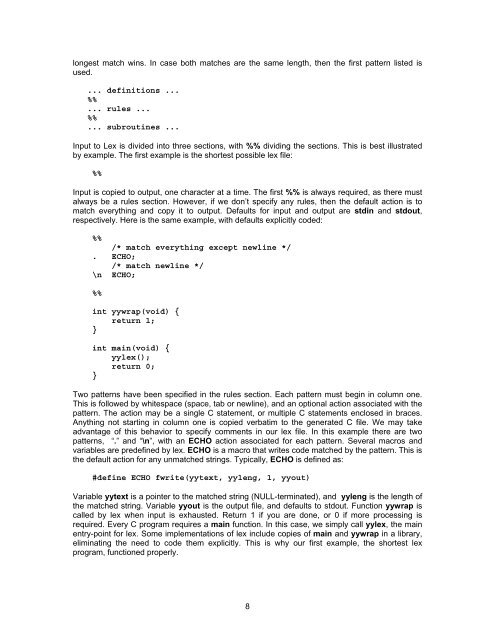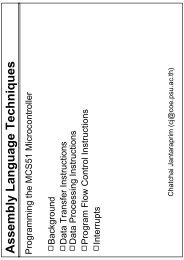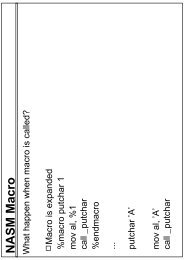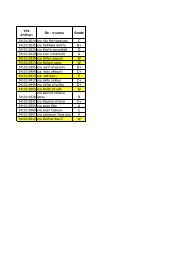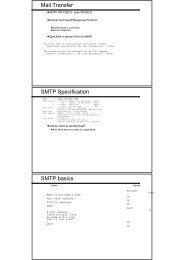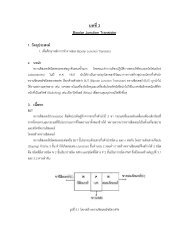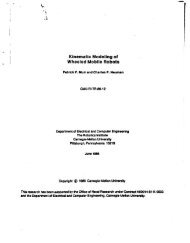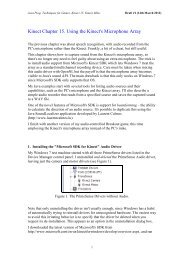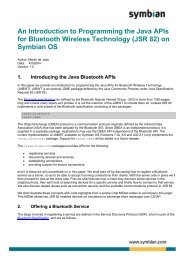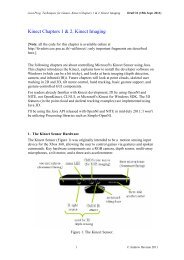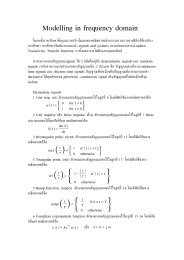LEX & YACC
LEX & YACC
LEX & YACC
You also want an ePaper? Increase the reach of your titles
YUMPU automatically turns print PDFs into web optimized ePapers that Google loves.
longest match wins. In case both matches are the same length, then the first pattern listed isused.... definitions ...%%... rules ...%%... subroutines ...Input to Lex is divided into three sections, with %% dividing the sections. This is best illustratedby example. The first example is the shortest possible lex file:%%Input is copied to output, one character at a time. The first %% is always required, as there mustalways be a rules section. However, if we don’t specify any rules, then the default action is tomatch everything and copy it to output. Defaults for input and output are stdin and stdout,respectively. Here is the same example, with defaults explicitly coded:%%/* match everything except newline */. ECHO;/* match newline */\n ECHO;%%int yywrap(void) {return 1;}int main(void) {yylex();return 0;}Two patterns have been specified in the rules section. Each pattern must begin in column one.This is followed by whitespace (space, tab or newline), and an optional action associated with thepattern. The action may be a single C statement, or multiple C statements enclosed in braces.Anything not starting in column one is copied verbatim to the generated C file. We may takeadvantage of this behavior to specify comments in our lex file. In this example there are twopatterns, “.” and “\n”, with an ECHO action associated for each pattern. Several macros andvariables are predefined by lex. ECHO is a macro that writes code matched by the pattern. This isthe default action for any unmatched strings. Typically, ECHO is defined as:#define ECHO fwrite(yytext, yyleng, 1, yyout)Variable yytext is a pointer to the matched string (NULL-terminated), and yyleng is the length ofthe matched string. Variable yyout is the output file, and defaults to stdout. Function yywrap iscalled by lex when input is exhausted. Return 1 if you are done, or 0 if more processing isrequired. Every C program requires a main function. In this case, we simply call yylex, the mainentry-point for lex. Some implementations of lex include copies of main and yywrap in a library,eliminating the need to code them explicitly. This is why our first example, the shortest lexprogram, functioned properly.8


